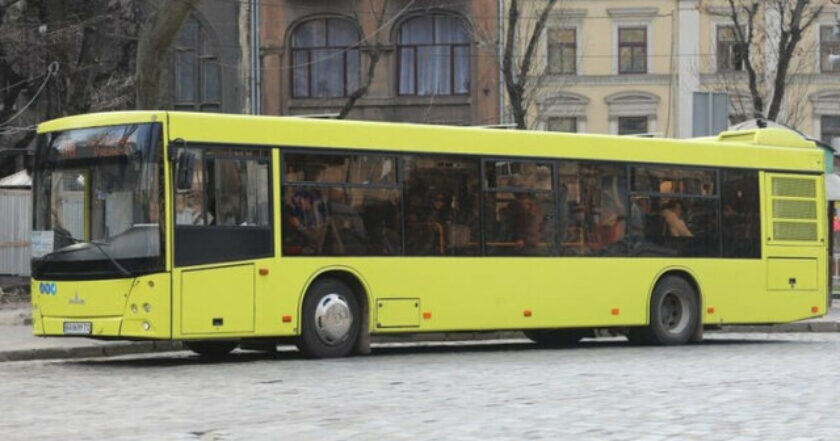Lviv launches free bus for the homeless to overcome transport barrier

Фото: ілюстративне
Ukraine's western Lviv authorities launched a social bus to transport homeless people to institutions where they will receive a full range of social services weekly during the winter.
What is the problem?
Life for the homeless in Ukraine has become unbearable since the start of the full-scale war.
The widespread destruction of homes and occupation of Ukrainian land has led to a sharp increase in the number of homeless people. The increased demand is stretching the limited resources available to those already among society's most vulnerable.
Not all of the homeless have chosen this life. Each of those who find themselves on the streets has a different story.
What is the solution?
A social bus is being launched in Lviv to transport homeless people weekly to institutions where they can receive a full range of social services, such as food provision, medical examinations, sanitary and hygienic services, and the opportunity to get clothes or shoes.
How does it work?
The bus will take homeless people to the "Oselia" complex, where they can receive various social and other services.
The executive committee of the Lviv City Council made the decision to provide free transportation to places where social and other services are provided.
"Given the winter period and the fact that we have both municipal and other forms of ownership institutions that provide social services to the homeless, we offer to transport them free of charge once a week during December and February to places where they can receive social and other services," said Oleksii Nedilya, acting head of the Social Protection Department of the Lviv City Council.

Warm clothes and footwear are available at the Support Center of the NGO "Community of Mutual Aid "Oselya"
Natalia Sanotska, executive director of the "Community of Mutual Assistance "Oselya" NGO, is the organization's support center in the suburbs of Lviv. Homeless people have to get there by public transport. Usually, the drivers are reluctant to take the homeless because they often have nothing to pay the fare, look untidy, or have many bags blocking the transport passage.
"To get social services, people have to walk to us, which 7 km from Lviv. It is especially difficult, so a free bus is exactly what we need!" said Natalia Sanotska.

Warm clothes and footwear are available at the Support Center of the NGO "Community of Mutual Aid "Oselya"
Homeless people can receive psychological support first aid, make new friends, and spend their leisure time attending workshops and movie screenings. The support center has alternative energy sources, so it is always warm and bright.

Master class at the Support Center of the NGO "Community of Mutual Assistance "Oselya"
"We have table tennis, chess, and a mini-library where people can borrow a book, read, and generally sit in the warmth. And the services in our center are provided by the residents of our organization, formerly homeless people who started living together, earning money for their own support and helping those who are poorer than themselves," said Natalia Sanotska.

A social bus in Lviv. Photo: Roman Baluk/ press service of Lviv City Council
On December 8, the bus made its first trip to the "Oselya, " bringing 30 passengers to the support center. Natalia Sanotska is confident that next Friday, many more people will arrive by bus.
"We are very pleased that the Social Protection Department, the Humanitarian Policy Department and, in fact, we have taken this initiative. About 70 people visit our support center every day. Today, there were 68, although 30 came by bus, because not all homeless people knew about this opportunity. But it was very nice that they got there without any problems, the bus was waiting for them, and after they had washed, it took them back to the city center," said Natalia Sanotska.

Library in the Support Center of the NGO "Community of Mutual Assistance "Oselya"
Natalia added that such an innovative solution for the social sphere of Ukraine was made possible in Lviv due to the constant active communication between organizations that care for the homeless and local authorities. The city council initially initiated a one-time trip to the organization's support center.
"We appealed to the city council and said that a one-time event simply does not make sense. Every day, not only the homeless come to us to have their hair cut, but also those who are on the verge of homelessness – low-income people, pensioners, families with many children, refugees who could not find a place for themselves in our city and are in difficulty. We also support them. So we need a bus on a regular basis, it will really help people a lot," said Natalia.

The dining room at the Support Center of the NGO "Community of Mutual Assistance "Oselya"
"We do not know what lies ahead and what else we will have to go through this winter, but when we realize that we are not alone in these trials, that we are all responsible for each other and ready to give each other a helping hand, we become stronger and have less fear and more hope."
"It is very important to communicate, it is very important to lobby for the interests of homeless poor people in government offices, to talk about it in the media. And you always need to offer a clear plan, to formulate exactly what is needed. Because the authorities do not always understand, do not always feel, and the best knowledge of the problems of homeless people is provided by those civic activists who work with them. And we have to become the voice of low-income people in all spheres of society," said Natalia.
Meanwhile, Lviv plans to arrange accessibility paths for the unimpeded movement of people with limited mobility.
Residents of large cities spend an average of 46% more time moving around to work due to traffic jams, and the travel time increases significantly during rush hour.
Most citizens complain about traffic jams. The mayor's office explains the city is not designed for so many vehicles, being a packed-up historical place.
During the war, thousands of Ukrainians took refuge here, which added a certain number of cars. The traffic is also complicated by repair work and overcrowded parking lots.
One way to solve the traffic problem in a city is to build interceptor parking lots at the entrance to Lviv. They not only relieve traffic but also positively impact the development of public transport.

















































